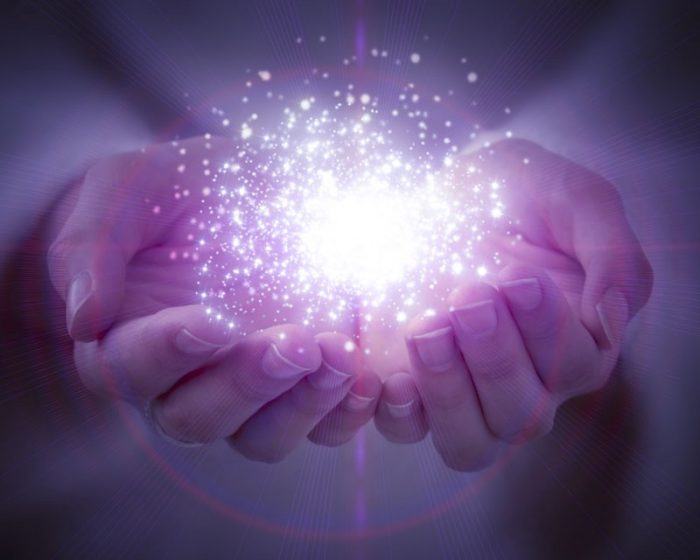What is the ‘law’ of attraction?
The law of attraction is a pseudoscience that first gained momentum in nineteenth-century New Thought philosophy and subsequently in the writings of Napoleon Hill, Louise Hay, Esther Hicks and others.
The concept gained prominence in the 1960’s as part of the New Age movement, largely due to its appeal to personal empowerment at a time of mass cultural liberation; a time when free-thinkers sought to dispel the myths and shackles of patriarchal ideologies, including religion. Indeed, the concept that we are the agents of our own destiny — that our interactions with a higher power enables us to manifest our wildest dreams — was the opposite of the belief in a transcendental, comminatory, masculine God that commands subservience through fear.
From a secular viewpoint the idea that we fashion our own reality — as opposed to being enslaved to dominant discourses — was a breath of fresh air to the plethora of subversive counter-cultures that emerged at the time.
In an increasingly secularised and individualistic society the concept has maintained its currency and has gained further popularity with the release of the film ‘The Secret’ (2006) and latterly with the publication of the eponymous book.
In essence, the law of attraction is the belief that positive or negative thoughts manifest positive or negative experiences into our lives. Drawing loosely on quantum physics, it is predicated on the idea that people and their ideas are made of energy, and therefore a person can fashion their own reality by emitting a certain energy signature that the Universe responds to in kind: so if you think that you are wealthy, then the Universe will manifest wealth for you; if you think that you are healthy, then the Universe will manifest good health for you, and so on.
Indeed, the author of the book The Secret (2006) — a compendium of pithy statements from esteemed spiritual teachers — claims that she restored her failing eyesight in just three days through the power of intention alone: the law of attraction, it would seem, can even alter our genetics and the physical laws of the Universe; but I don’t think optometrists need be fearful for their livelihoods just yet.
According to the law of attraction we are empowered to make our unlimited desires come true. There is no limit to what we can manifest through positive thought alone. We are the shapers of our destiny; we are masters over the Universe because it responds to our will and our desire. But not only should we be careful what we wish for, we also need to be careful howwe wish for it, for the Universe, it would seem, is sensitive to semantics.
So if we affirm to ourselves ‘I do not want to be poor’, the Universe cannot discern between ‘do ‘and ‘do not’, and so focuses on the ‘poor’. To attract abundance, we need to affirm ‘I want to be rich’. Personally, I assumed the Universe — the originator of our very being — to be more intelligent than that. Moreover, I would argue that all that matters is the energetic vibration at the time of our wish making, so regardless of whether we say we ‘do’ or ‘do not’, if our emotion is a positive one, then according to the law of attraction our wish should manifest accordingly.
But what happens if we don’t manifest what we desire?
Then law of attraction proponents tell us it’s because our vibration isn’t high enough, or we have a mindset of lack.
A lack mindset means we don’t wholeheartedly believe or feel we are worthy of what we want to manifest. For example, most law of attraction gurus teach about attracting abundance, in particular manifesting more money. But we may hold limiting beliefs around money, or we may believe that there is not enough abundance in the world for everyone, or we may believe that we aren’t good enough to receive what we wish for.
A lack mentality is anathema to manifesting: it is the block of all mental blocks. But here’s the rub.
The law of attraction is about energetic alignment with a desire, a need, or a want. But isn’t any sense of desiring, needing, or wanting rooted in a sense of lack? We desire something, need something, or want something precisely because we don’t currently have it — after all, that’s why we wish to manifest it, right? So is this an inherent paradox at the heart of the law of attraction? That to wish for anything is to acknowledge that something is lacking.
What does hold up in the law of attraction theory, however, is attracting more of the same, for that vibration is rooted in the feeling of gratitude for what we already have. If we appreciate the abundance that is already in our lives, then we are in alignment with that frequency, and therefore attract more of the same.
Personally, my belief about the law of attraction is that our beliefs shape our reality, not in the sense that if I want a million pounds then a million pounds will magically manifest in the physical world, but in the sense of alignment to our inner truths.
Everything exists only as it is perceived. So what matters is how we choose to perceive our experiences and how we react to the situations and events we encounter in our lives. If I have a mentality of lack, then it has nothing to do with being unable to manifest money; but it has everything to do with how I perceive myself, how I value myself: it determines my own self-worth; it determines whether I feel good enough. If I change my inner belief and instead adopt a mindset of abundance as opposed to lack, then I will feel enough, I will feel empowered, and this translates into my everyday world in terms of how I show up, how interact with others, how I value myself and so on.
Indeed, our beliefs shape how we perceive our selves, the world, and the people in it: if we change our belief, then we change our experience of the world. It is in this respect that we can shape our reality, because the only reality that exists is the one that we choose to perceive.












Read 0 comments and reply